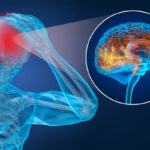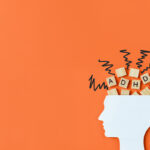Previously, we’ve written about different types of depressive disorders, including Seasonal Affective Disorder and Major Depressive Disorder.
The complexity of depression is vast, and it’s important that we educate our audience on everything there is to know about them. Today, we discuss Situational Depression, which is depression brought on by a specific stressful event. It is also called Reactive Depression and is an adjustment disorder.
That does not mean that situational depression is less serious than other kinds, or that those who suffer from it should delay in seeking help. Situational depression can be debilitating, but it is also treatable. The more we understand, the better.
What is Situational Depression?
Situational Depression is triggered by a seriously stressful or even traumatic event. You may be at increased risk of developing this disorder if you have previously experienced the kinds of events that can cause it.
Situational Depression has similar symptoms to other kinds of depression, such as:
- Feeling sad, overwhelmed, or hopeless
- Not enjoying normal activities
- Crying and having trouble focusing
- Constant worrying or anxiety
- Trouble performing normal activities
- Not taking care of your bills or going to work
- Avoiding people and social situations
- Thoughts of suicide or suicide attempts
Causes of Situational Depression
Major life changes are often the catalysts of Situational Depression, and they include:
- Relationship problems: The death of a family member, friend or pet, a divorce, or other serious issues with a close relationship. Having a baby may also cause situational depression.
- Work problems: The loss of a job, retirement, starting a new job, or having other issues with your current job.
- Health issues: A car accident or other injury, a serious or difficult diagnosis and other health challenges.
- School issues: Returning to school, leaving school or having other school problems are other potential triggers.
- Trauma: Natural disasters, assaults, abuse, unstable living situations, and other traumatic events can also cause situational depression, although they may also cause Post Traumatic Stress Disorder (PTSD) and other mental illnesses.
Treatments for Situational Depression
Situational Depression can be diagnosed by neuropsychological testing, a process of problem solving to try and determine the core components of a person’s psychological or mental health problems, personality, IQ, or some other component. One of the most proven treatments and therapeutic interventions is psychotherapy and its disciplines, Cognitive Behavioral Therapy (CBT), Dialectical Behavior Therapy (DBT), as well as Neurofeedback Therapy.
Other methods of Situational Depression management include:
- Keep healthy routines: In order to support your recovery, focus on keeping your exercise routine and eating properly.
- Express feelings: Speak to people about what you are going through or keep a journal where you can process your feelings.
- Mindfulness: Routines such as mindful meditation, progressive muscle relaxation, and slow, deep breathing can help you handle situational depression.
- Nature: Spending time in nature can help.
As with other mental health disorders, early intervention and ongoing treatment can help minimize the symptoms of Situational Depression, giving you the quality of life you deserve.
The Chicago Mind Solutions Difference
Chicago Mind Solutions works with individuals, offering neuropsychological testing and non-invasive treatment for many mental health conditions. For more information about our treatments and teletherapy options, please contact us at (224) 723-5050 or email info@chicagomindsolutions.com.






